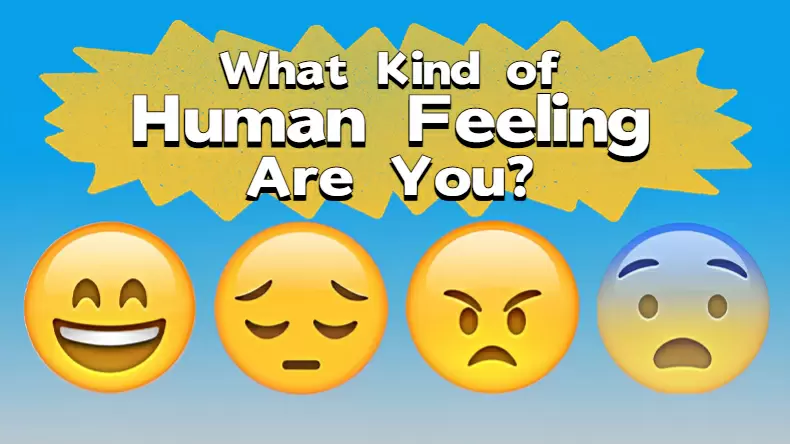Which LE SSERAFIM Member Are You? Quiz
This quiz is a fun and engaging quiz designed to help you gain a better understanding of your emotions and how they impact your personality. By answering a series of carefully crafted questions, you'll discover which human feeling resonates with you the most. Are you an empathetic person who feels deeply for others, or perhaps you are more resilient and able to bounce back from adversity with ease? Maybe you're someone who exudes joy and positivity wherever you go, or perhaps you have a strong sense of gratitude and appreciation for the people and things in your life. Whatever the result may be, our quiz will provide you with valuable insights into your emotional tendencies and help you better understand yourself. So, why not give it a try and discover what kind of human feeling you are? 
Fascinating Insights into Human Feelings
We experience a wide range of emotions: Humans are capable of experiencing a vast array of emotions, ranging from love and joy to anger and sadness. Studies have shown that there are at least 27 different emotions that humans can feel. 
Emotions have a physiological response: When we experience emotions, our bodies respond physically. For example, when we're afraid, our heart rate increases, our breathing quickens, and our muscles tense up. This response is part of our "fight or flight" response, which is designed to help us survive in dangerous situations.
Emotions are contagious: Research has shown that emotions can be contagious. When we see someone else experiencing an emotion, we tend to "catch" that emotion ourselves. This is why we often feel sad when we see someone else crying, or happy when we see someone else laughing.
Emotions can be influenced by culture: The way we express and experience emotions can be influenced by our culture. For example, some cultures may encourage people to express their emotions openly, while others may encourage people to suppress their emotions.
Emotions can be beneficial: While some emotions, like anger and sadness, may feel uncomfortable, they can be beneficial in certain situations. For example, anger can motivate us to take action, while sadness can help us process grief and loss.
Emotional intelligence can be developed: Emotional intelligence is the ability to recognize, understand, and manage our own emotions, as well as the emotions of others. This skill can be developed through practice and self-reflection.
Emotions can affect our physical health: Studies have shown that emotions can have a direct impact on our physical health. For example, chronic stress can increase our risk of developing health problems like heart disease and depression.
Overall, human feelings are a fascinating and complex topic. Understanding our emotions can help us navigate the world around us and improve our relationships with others.












